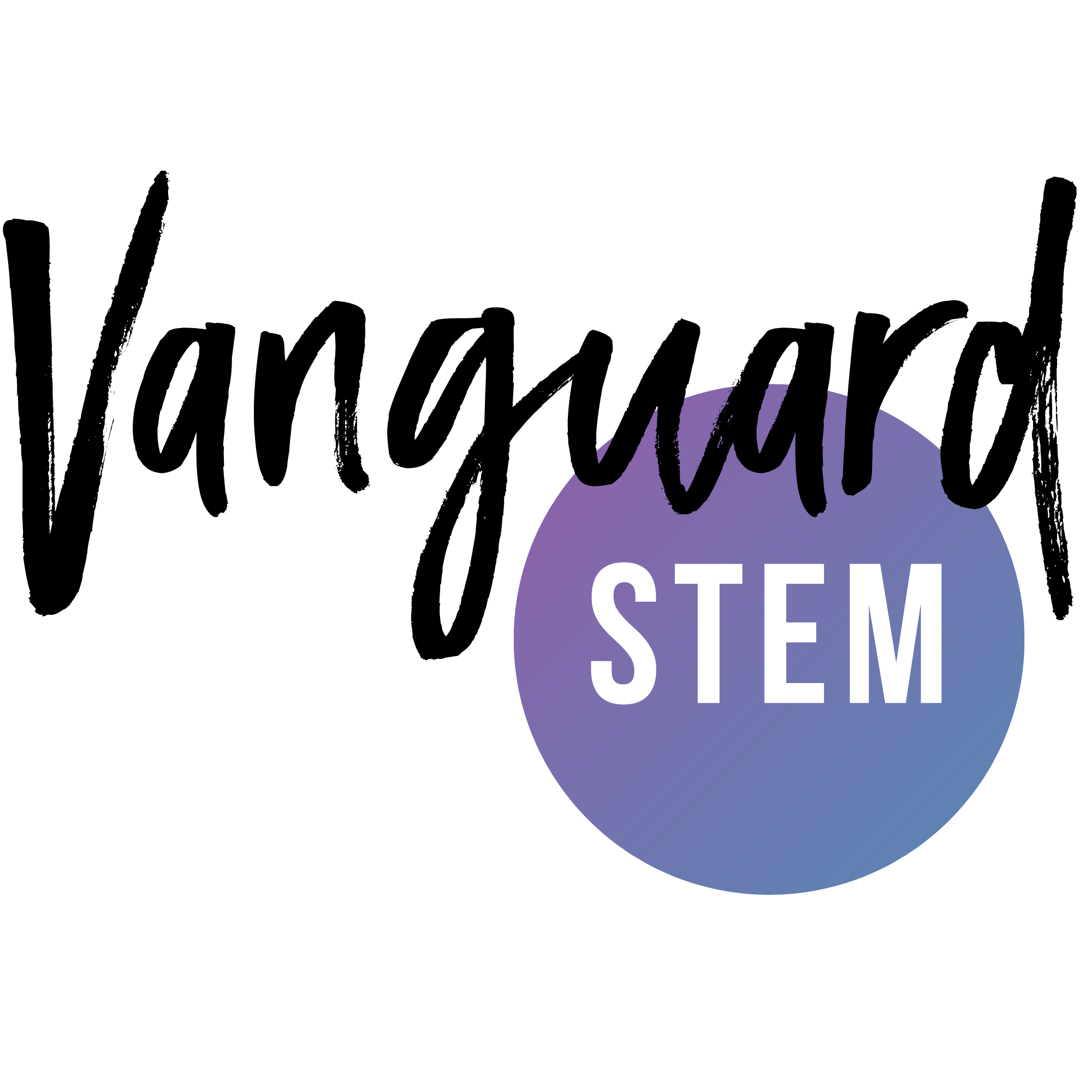Here are 8 peer-reviewed articles by BI[W+NBP]OC authors as part of our #VSGetsLit Series, covering STEM-related basic research, equity and cultural studies. Come back every month for a new list of peer-reviewed articles and data-driven reports.

In January, the #VanguardSTEM team released our first peer-reviewed article (which you can find here). We were so excited for everyone to read (and CITE! it), that we thought we’d extend that same sentiment to the many other scholarly works that BI[W+NBP]OC in STEM are producing. To that end, we introduced our year-long #VSGetsLit Book & Journal Club. This month we’re back with some publications we found across the innanets, that we thought you might enjoy that relate to basic STEM research as well as STEM equity and cultural studies. We will also add at least 1–2 previously published and seminal works from the literature to round out the bunch.
(Editor’s Note: This is certainly not an exhaustive list and we are not affiliated with the publication’s authors or responsible for the content, journal choice or accessibility of any article below, unless specifically indicated. We simply want to #AmplifyBlackSTEM and #AmplifyBIPOCinSTEM by sharing articles that engage concepts similar to the VanguardSTEM hyperspace that we theorized in our paper. If you have written a recent paper and want us to highlight it, tag us (@VanguardSTEM) on twitter or instagram with #VSGetsLit and/or email us a pdf copy of it.)
Without further ado…
Here are 8 peer-reviewed articles by and for Black, Indigenous, Women & Non-binary People of Color in STEM.
1. Fund Black Scientists
Find their article here.
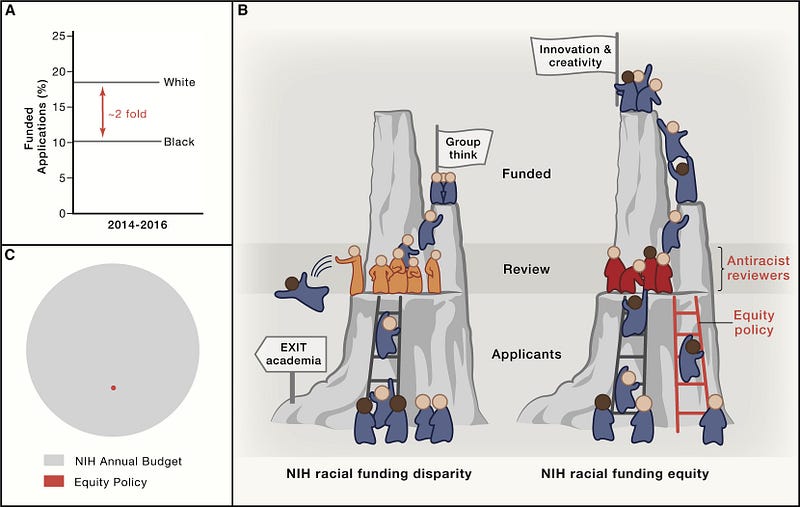
Authors: Kelly R. Stevens, Kristyn S. Masters, P.I. Imoukhuede, Karmella A. Haynes, Lori A. Setton, Elizabetth Cosgriff-Hernandez, Muyinatu A. Lediju Bell, Padmini Rangamani, Shelly e. Sakiyama-Elbeert, Stacey D. Finley, Rebecca K. Willits, Abigail N. Koppes, Naomi C. Chesleer, Karen L. Christman, Josephine B. Allen, Joyce Y. Wong, Hana El-Samad, Tejal A. Desai, Omolola Eniola- Adefeso.
Abstract: “Our nationwide network of BME women faculty collectively argue that racial funding disparity by the National Institutes of Health (NIH) remains the most insidious barrier to success of Black faculty in our profession. We thus refocus attention on this critical barrier and suggest solutions on how it can be dismantled.”
2. Centering Hispanic-Serving Institutions’ strategies to develop talent in computing fields
Find their article here. (Note it’s also available in Spanish and Portuguese!)
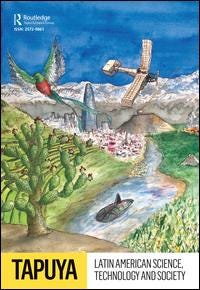
Authors: Anne-Marie Núñez, Jessica Rivera, Jennifer Valdez & Victoria Barbosa
Abstract: “Hispanics have become the largest ethnic minority in the US. Better serving Hispanics to succeed in tertiary education and scientific fields like computing is critical to build equitable life opportunities and strengthen the US workforce. Typically, the most selective postsecondary institutions are emphasized as exemplary models for developing human capital in the US. Yet, due to the nation’s tertiary education institutional stratification, relatively low numbers of Hispanics are enrolled in these institutions. We examine how Hispanic-Serving Institutions (HSIs), federally designated institutions in the US that enroll at least 25% Hispanics, develop strategies to raise Hispanic attainment in computing fields. Specifically, we explore the activities of HSIs in the Computing Alliance for Hispanic-Serving Institutions (CAHSI), a network of over 60 HSIs and other stakeholders that are committed to raising Hispanic attainment in postsecondary computing. We address the question: How do HSIs in CAHSI employ strategies to develop talent in computing among Hispanics? Specifically, we examine how CAHSI institutions apply values that are grounded in Hispanic communities, including emphases on confianza, respeto, and familia, to support Hispanic students in computer science. Our findings indicate the importance of centering Hispanic cultural assets to improve Hispanic success in computing.”
3. Towards Decolonising Computational Sciences
Find their article here.
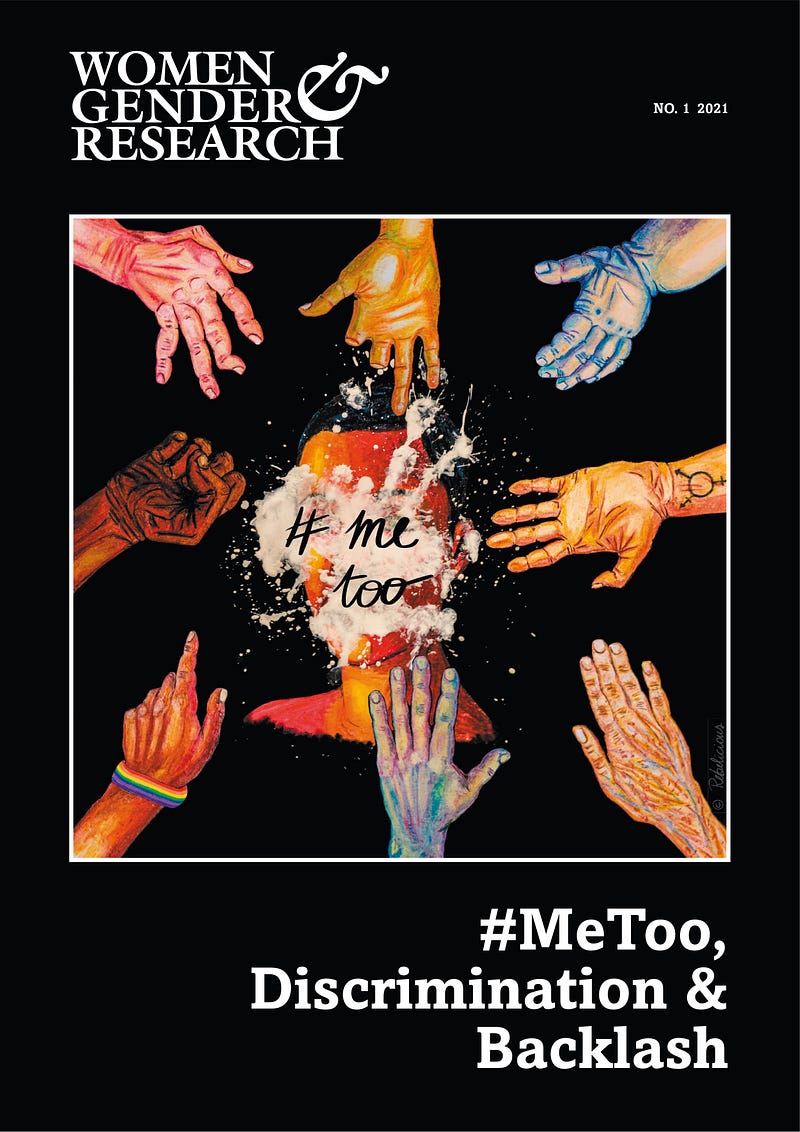
Authors: Abebe Birhane & Olivia Guest
Abstract: “This article sets out our perspective on how to begin the journey of decolonising computational fields, such as data and cognitive sciences. We see this struggle as requiring two basic steps: a) realisation that the present-day system has inherited, and still enacts, hostile, conservative, and oppressive behaviours and principles towards women of colour; and b) rejection of the idea that centering individual people is a solution to system-level problems. The longer we ignore these two steps, the more “our” academic system maintains its toxic structure, excludes, and harms Black women and other minoritised groups. This also keeps the door open to discredited pseudoscience, like eugenics and physiognomy. We propose that grappling with our fields’ histories and heritage holds the key to avoiding mistakes of the past. In contrast to, for example, initiatives such as “diversity boards”, which can be harmful because they superficially appear reformatory but nonetheless center whiteness and maintain the status quo. Building on the work of many women of colour, we hope to advance the dialogue required to build both a grass-roots and a top-down re-imagining of computational sciences — including but not limited to psychology, neuroscience, cognitive science, computer science, data science, statistics, machine learning, and artificial intelligence. We aspire to progress away from these fields’ stagnant, sexist, and racist shared past into an ecosystem that welcomes and nurtures demographically diverse researchers and ideas that critically challenge the status quo.”
4. Black Maternal Health Re-envisioned: Best Practices for the Conduct of Research With, For, and By Black Mamas
Find their article here (pdf).
https://twitter.com/mclemoremr/status/1329159517263724545?s=20
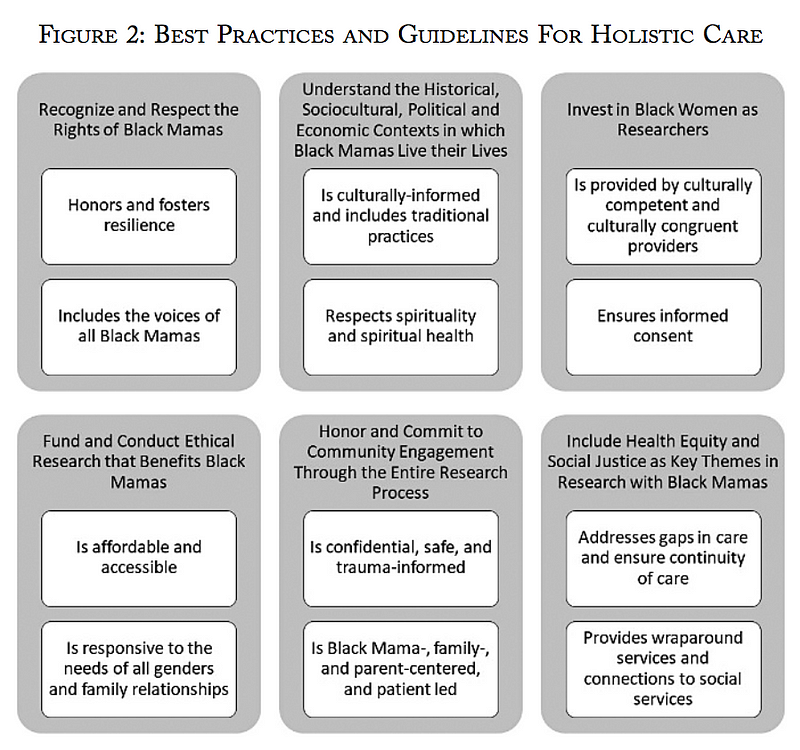
Authors: Black Women Scholars and the Research Working Group of the Black Mamas Matter Alliance
Abstract: The purpose of this article is to provide an overview of a forthcoming report entitled Black Maternal Health Research Re-Envisioned: Recommendations for Improving Research on Maternity Care for Black Mamas which provides principles that should underpin the ethical design of clinical, epidemiological, health services, and public health research, specifically, with, for, and by Black Mamas. This article supplements the research rubric developed by the Research Working Group of the Black Mamas Matter Alliance. The full report presents recommendations for improving research on maternal health outcomes for Black Mamas and integrates the BMMA Care Working Group’s Black Paper: Setting the Standard for Holistic Care of and for Black Women. This article begins by defining the problem and the inherent assumptions necessary to determine the positionality of the research rubric and report. Fundamentally, we believe the conduct of research has historically been unethical and inhumane specific to Black Mamas. We then turn to historical perspectives and the conceptual framework used to develop the research rubric. The framework includes Birth Justice, Reproductive Justice, Human Rights, Black Feminism, Womanism, and Research Justice. Next, we synthesize the intersections of the holistic care report and use those principles to outline how they apply to research. Finally, we present the re-envisioning of research from the perspective of reproductive justice and why this approach is optimal in the current landscape of health services provision, law, policy, and science.
5. Diversity and inclusion activisms in animal behaviour and the ABS: a historical view from the U.S.A.
Find her article here.
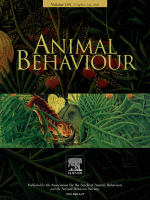
Author: Danielle N. Lee
Publication: Animal Behaviour, Volume 164, June 2020, Pages 273–280
Abstract: This paper examines the context of science scholarship and research careers experienced by behavioural biologists from under-represented minority (URM) groups during the period starting in the late 1800s until the early decades of the Animal Behavior Society (ABS). For much of history, white European and American men have dominated the seats of scientific leadership, shaping narratives and controlling who asks scientific questions, how these questions are examined and what is significant. Yet, individuals from URM groups have navigated careers in animal behaviour and related fields, and along with some nonminority allied scientists, have often simultaneously advocated for diversity and inclusion among our ranks. The lasting impact of these scholar activists has been important not only to the discipline, but to science as a whole. This paper shines lights on missing narratives of URMs who were often excluded in academic histories, as well as emphasizing the importance of creating more inclusive spaces for future animal behaviour scholars. I highlight the contributions of American scientists in the U.S.A. who have contributed to the development of animal behaviour and related disciplines and have raised awareness about social justice and inclusivity in our field.
6. Factors which Contribute to or Inhibit Women in Science, Technology, Engineering, and Mathematics in Africa
You can find their report here (pdf).
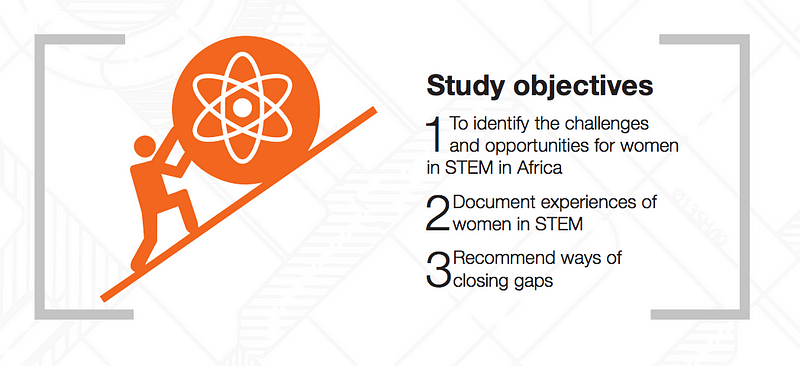
Authors: Mukhwana A.M., Abuya T., Matanda D., Omumbo J., Mabuka J. for the African Academy of Sciences
Summary: Cognizant of the gender disparity in STEM, the African Academy of Sciences (AAS) conducted a study to assess factors contributing to or inhibiting women’s careers in STEM in Africa. Specifically, the study aimed to identify the challenges and opportunities that women in STEM in Africa face through their career. A mixed methods approach was used to collect data that included conducting a scoping review of literature, in-depth interviews with a range of women working in STEM, and an online survey of women either working in STEM or still in school pursuing STEM related courses. Study findings showed that women’s success in STEM was influenced by various factors that reinforce each other at various levels including at the individual, family, societal and the work environment. At the individual level, personal capabilities and academic preparation influenced the choice of whether women pursued STEM related careers or not. The choice to pursue STEM related careers was further influenced by other women working in STEM who acted as role models. Factors at societal level played a significant role in influencing the choice and success of women pursuing STEM related careers. Patriarchal attitudes at a macro level affected the choice of women to pursue and succeed in STEM. The success of women already working in STEM was highly influenced by the work environment — the recruitment process, promotion and gender relations played a great role in women’s success or failure in STEM. Policies to address the gender gap in STEM exist but they are rarely implemented.
7. The Impact of a diversity intervention on White college students’ colour-blind racial attitudes
You can find their article here.
@kirabanks and @MeghanBPhD created a program for incoming white college students to explore and challenge their whiteness. We just published a paper on the impact of the program on students’ color-blind racial attitudes, which came from my college thesis) pic.twitter.com/qMPvYwtqz8
— Josi Bañales (@JosiBanales) January 5, 2021
Here are the takeaways: There is no excuse for white students at PWIs to not engage in conversations about white supremacy, anti-Blackness, xenophobia, and their racial identity. BIPOC people are not always needed to have these convos.
— Josi Bañales (@JosiBanales) January 5, 2021
These spaces should be lead by white students and faculty who consistently reflect on their white privilege and unintentional/ intentional involvement in perpetuating white supremacist practices and ideologies.
— Josi Bañales (@JosiBanales) January 5, 2021
These dialogues should be held early in college, before college even begins. They can happen during student orientation before students establish all white friend groups. Our dialogue program lasted 3 days and was held before the traditional orientation.
— Josi Bañales (@JosiBanales) January 5, 2021
These opportunities may increase students’ awareness of their racial privilege and blatant racial issues. However, students might need more time to gain an understanding of institutional racism.
— Josi Bañales (@JosiBanales) January 5, 2021
Authors: Josefina Bañales, Kira Hudson Banks & Meghan A. Burke
Abstract: This research explored the impact a 3-day pre-college diversity intervention had on incoming White college students’ (N = 63) colour-blind racial attitudes (COBRAS), or their unawareness of racial privilege, blatant racial issues, and institutional discrimination. Repeated measures analysis of variance tests indicated that students reported a greater awareness of racial privilege and blatant racial issues immediately after the programme. Students’ awareness of institutional discrimination — a potentially more abstract and complex understanding of racism — did not change after the program. To isolate the effects of the intervention, independent sample t-tests between White college students who did not undergo the intervention and intervention participants were conducted. Results indicated that both samples did not have significantly different COBRAS before the intervention, providing evidence that the intervention likely contributed to changes in intervention participants’ COBRAS. These results suggest that the pre-college diversity intervention impacted forms of COBRAS differently. Implications for diversity interventions on predominantly White college campuses are discussed.
8. Establishing a High Throughput Epidermal Spheroid Culture System to Model Keratinocyte Stem Cell Plasticity
Find their article here.
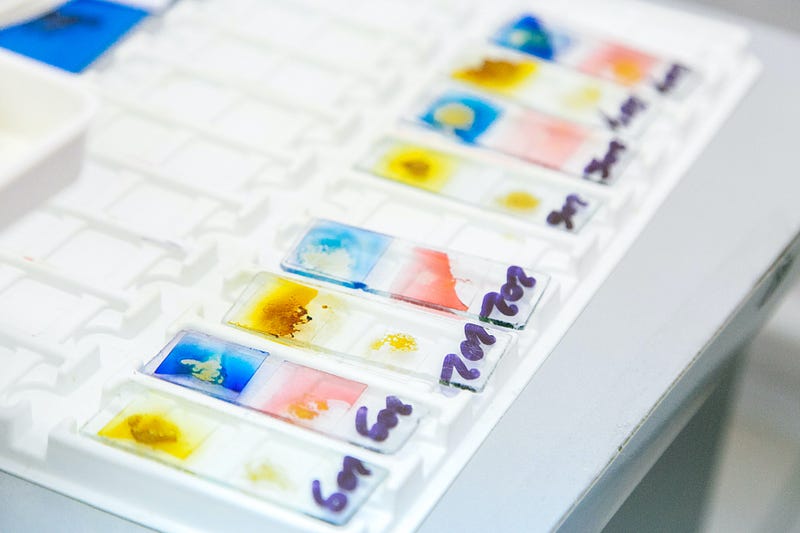
Authors: Yvon Woappi, Geraldine Ezeka, Justin Vercellino, Sean M. Bloos, Kim E. Creek, Lucia Pirisi
Abstract: Epithelial dysregulation is a node for a variety of human conditions and ailments, including chronic wounding, inflammation, and over 80% of all human cancers. As a lining tissue, the skin epithelium is often subject to injury and has evolutionarily adapted by acquiring the cellular plasticity necessary to repair damaged tissue. Over the years, several efforts have been made to study epithelial plasticity using in vitro and ex vivo cell-based models. However, these efforts have been limited in their capacity to recapitulate the various phases of epithelial cell plasticity. We describe here a protocol for generating 3D epidermal spheroids and epidermal spheroid-derived cells from primary neonatal human keratinocytes. This protocol outlines the capacity of epidermal spheroid cultures to functionally model distinct stages of keratinocyte generative plasticity and demonstrates that epidermal spheroid re-plating can enrich heterogenous normal human keratinocytes (NHKc) cultures for integrinα6hi/EGFRlo keratinocyte subpopulations with enhanced stem-like characteristics. Our report describes the development and maintenance of a high throughput system for the study of skin keratinocyte plasticity and epidermal regeneration.
Plus 1 Bonus Read: An “oldie but goodie” you should know about…
The Double Bind: The Price of Being a Minority Woman in Science. Report of a Conference of Minority Women Scientists, Arlie House, Warrenton, Virginia.
Find their paradigm-shifting report here (pdf).
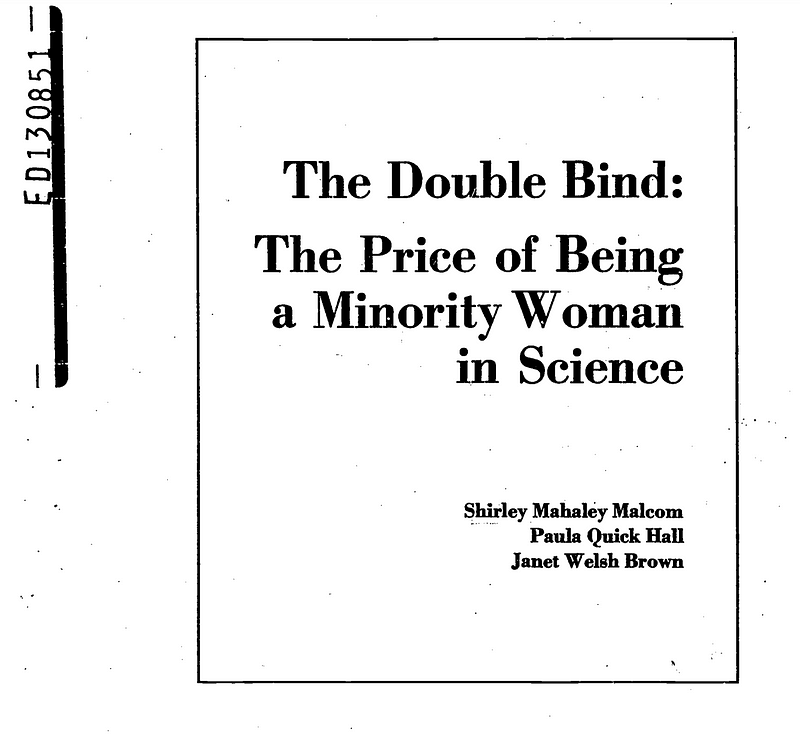
Authors: Shirley Mahaley Malcom, Paula Quick Hall & Janet Welsh Brown
Summary: This report summarizes a conference of thirty minority women in science, engineering, medicine, and dentistry that was held in December 1975, with the support of the National Science Foundation. In addition to a general discussion of the conference and the conferees, the following topics are discussed with respect to the experiences of the minority women scientists: the precollegiate experience, collegiate and professional education, career experience, the diversity of race and culture, and recommendations, programs, and conclusions.
That’s it for this month’s round-up of peer-reviewed articles and reports for the #VSGetsLit Journal Club! What are you reading? Have you written something recently? Please do share any peer-reviewed papers or data-driven reports by Black, Indigenous, Women and Non-binary People of Color in STEM (and that includes self-citation!). We’ll do our best to share them with the #VSVillage.
This article was originally published on February 23, 2021 on VanguardSTEM.com as part of our #VSGetsLit series.
If you enjoy our original content, consider donating to our parent not-for-profit, The SeRCH Foundation, Inc., to help support this work.
